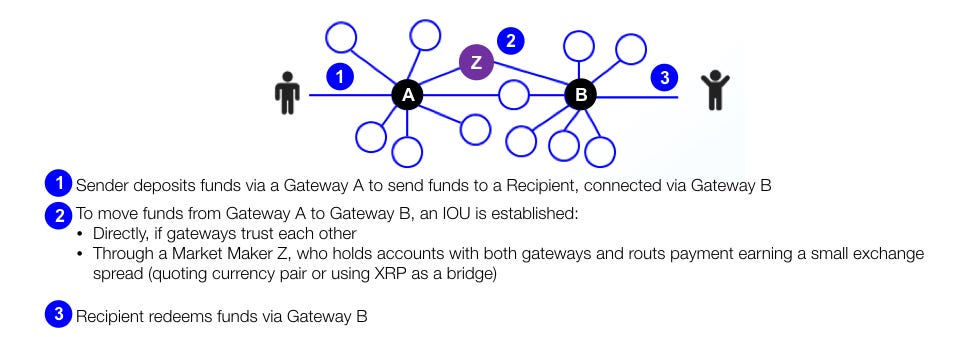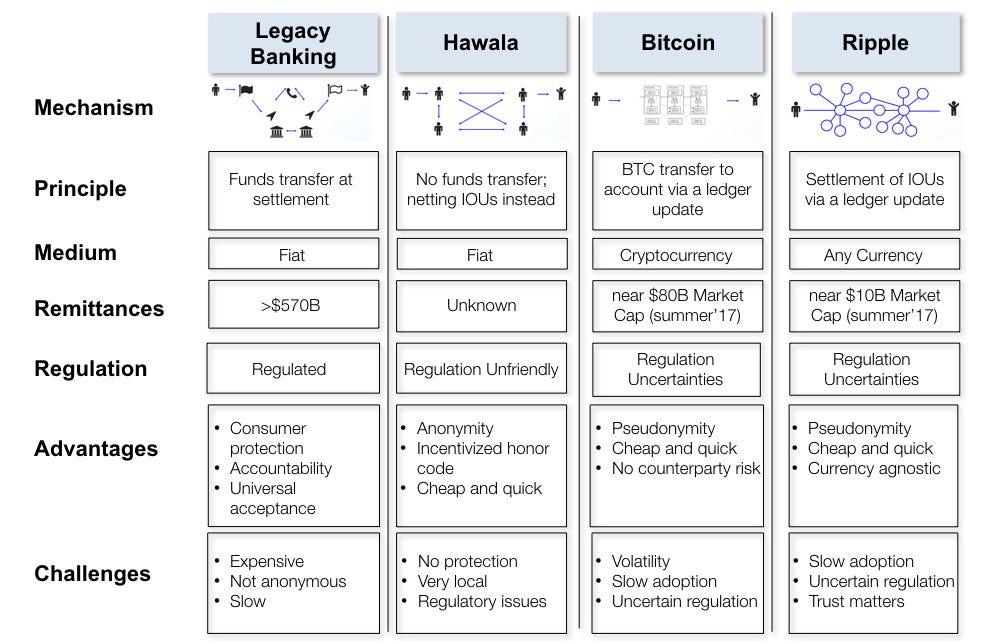Latest news about Bitcoin and all cryptocurrencies. Your daily crypto news habit.
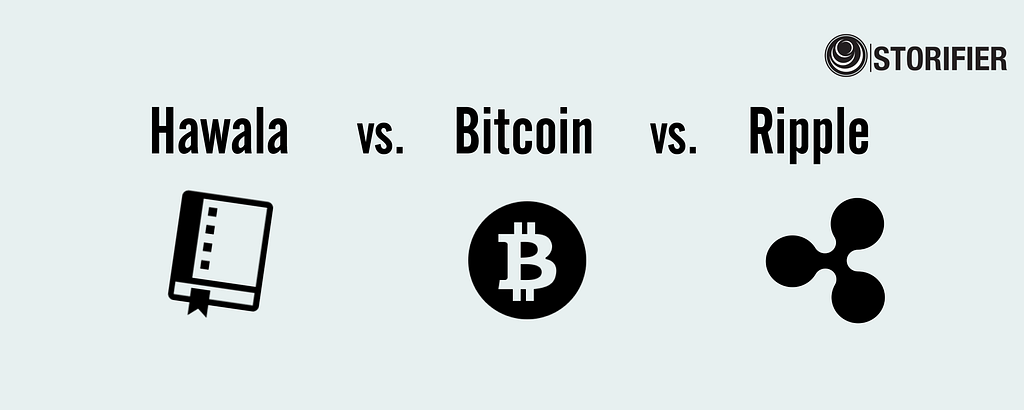
Since payments were the most initial application of the blockchain, we decided to go back to basics and to compare how value is transferred in Bitcoin, Ripple, and the informal network with ancient origin, Hawala. We’ll start with the latter.
Hawala: Informal Value Transfer System
Hawala is an alternative remittance system that exists outside of (or in parallel with) the traditional financial channels and is based on trust.
- Not the only informal remittance system (Hawala: Middle East, Afghanistan, Indian Sub-Continent; Hundi: India; “Flying Money”: China, etc.)
- Not necessarily illegal
- Does not entirely exclude banking system
In Hawala, most of the time, money never crosses border: it is only a journal entry.
How it works:
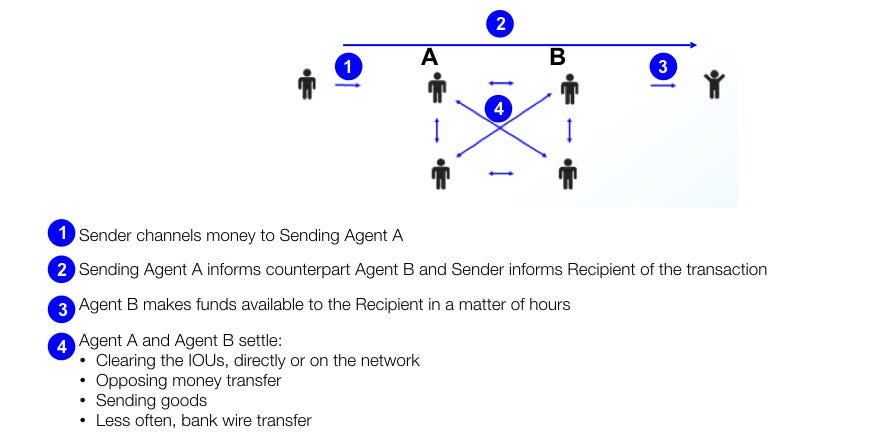 Bitcoin: Decentralized Currency as a Medium for Value Transfer
Bitcoin: Decentralized Currency as a Medium for Value Transfer
Bitcoin is a consensus-based peer-to-peer network that enables a payment system and a completely decentralized currency. The network consists of the same copy of a digital file, listing accounts like a ledger and maintained on every computer on the network.
- Maintains its own currency, BTC, that has no counterparty risk
- Allows transferring of payments via transactions confirmed by the network
Exchange services can help establishing a money transfer structure where Sender / Recipient do not need to engage with BTC themselves.
How it works:
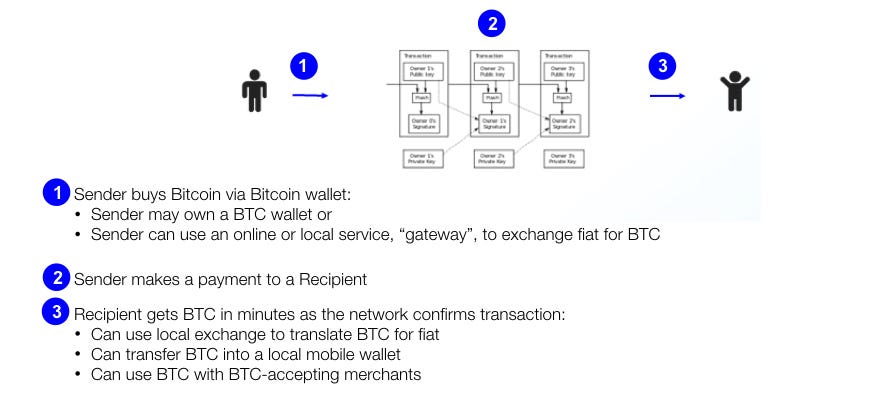 Ripple: Distributed Ledger of IOUs as a Medium for Value Transfer
Ripple: Distributed Ledger of IOUs as a Medium for Value Transfer
Ripple is a consensus-based distributed network allowing independent payment systems to send instant and almost free payments in any currency. As in Bitcoin, the network consists of the shared copy of a ledger; however, unlike Bitcoin, it tracks balances of any currency (not only BTC) in form of IOUs between issuers that trust each other.
- Maintains its own currency, XRP, for security and currency bridging purposes
- Gives users ability to choose currency, including BTC, and issue their own
- Provides access to network via gateways
Since Market Makers are involved to route a payment, Ripple users can pay each other in currencies that they do not hold
How it works:
Bringing it all together:
Will the advantages of the decentralized money transfer systems help them dominate over the legacy banking one day? Can they scale enough to process the necessary volume of transactions? And do we need a winner or legacy banking can evolve together with decentralized money transfer systems adopting the best practices from each other? What’s your view?
Hawala vs. Bitcoin vs. Ripple was originally published in Hacker Noon on Medium, where people are continuing the conversation by highlighting and responding to this story.
Disclaimer
The views and opinions expressed in this article are solely those of the authors and do not reflect the views of Bitcoin Insider. Every investment and trading move involves risk - this is especially true for cryptocurrencies given their volatility. We strongly advise our readers to conduct their own research when making a decision.
